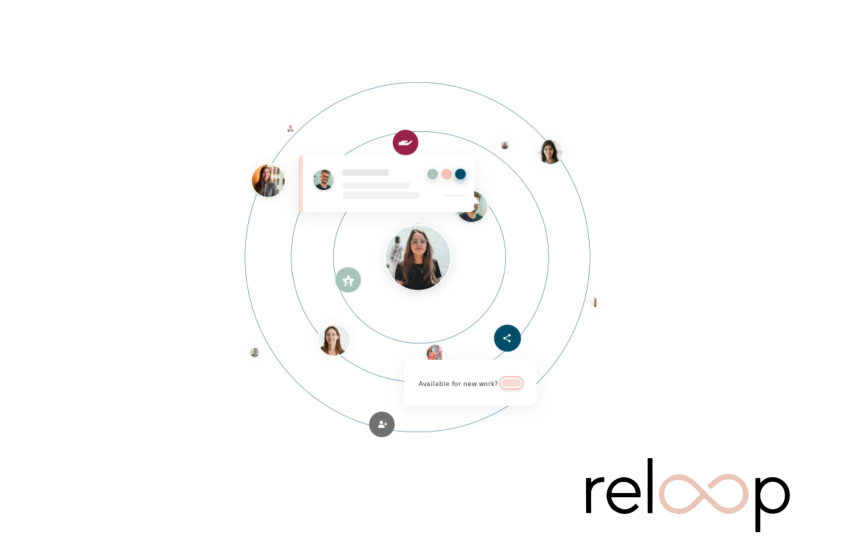The Squiggly Option – why more people are choosing the non-linear portfolio career path
In the past few decades there has been a notable shift from the traditional ideas of what a career is. Terms such as ‘portfolio career’ or ‘freelance’ have become the buzz words of modern work and influencers show off the lavish and exciting lifestyle that can be achieved by “being your own boss”. A survey by Flywheel Associates shows that 52% of workers say that their metric of success is not related to being part of a singular company, and a recent government survey shows that 37% more people have a portfolio career now than before the pandemic.
So why are more and more people gravitating towards the non-linear career path and what catalysed this deviation from the ladder-climbing approach so synonymous with professions of the past?
Dynamic Work Landscape
Now more than ever, the work landscape is constantly changing at an incredible rate. The rise of AI and the progress of science means that modern professionals need to stay light on their feet in order to survive. It is easy to see why the term ‘portfolio career’ is rising in popularity as the term ‘future-proofing’ is making its way into our collective vernacular.
Portfolio careers protect people from job obsolescence as you decide what skills to hone, what projects to take on and what industries to be involved in. The flexibility that comes with self-employment allows one to shift with the landscape with much more speed than if tied to a company with the turning circle of a cargo ship. In many ways, the rise in portfolio careers comes from a place of necessity, an evolutionary decision to remain adaptable in the ever-changing job market.
Passion, purpose and personal growth
The decision to pursue the squiggly option can also come out of prioritisation of the pursuit of passion and meaning. Portfolio careers offer the freedom to explore various interests and experiment with different career paths. As you are not confined to a singular source of income, there is less risk in redirecting part of your focus to a long-time hobby or a passion project. This is also why the portfolio career is ideal for those who don’t quite know what they want to do professionally, but don’t want to commit themselves to something they don’t know they’re passionate about.
A portfolio career can be a stepping stone to a more linear career, but doing something you love. How else can you know if you don’t try it out first. The squiggly option gives you the freedom to explore what your professional passion might be.
The ever elusive work-life ‘balance’ or ‘integration’
The pursuit of work-life ‘balance’ or work life ‘integration’, and overall well-being has become a prominent factor in career decision-making. The linear career path, with its often rigid and demanding structures, can lead to burnout and a lack of fulfilment.
In contrast, the squiggly option allows individuals to prioritise their well-being by creating a customised career path that aligns with their lifestyle choices and personal goals.
There is no doubt that our values and attitudes have changed towards work over the past few years, and this was further accelerated by the pandemic. In a recent Gartner survey, 65% of people agreed that the pandemic shifted their attitude toward the importance of aspects outside of work. It is no longer only about the money. Work-life ‘balance’ or ‘integration’ is coming to the forefront.
Work life balance is evolving for both men and women. Responsibilities at home and the need to don multiple hats is no longer just a woman’s duty. Men are stepping up and carving out a new non-linear career path so they can juggle a wide-range of commitments.
Many professionals are jumping at the opportunity to cut out the commute – particularly in big cities. It’s time-wasting and expensive. What started as mandatory during lockdown, has resulted in many people realising the benefits it could bring, without as much downside as previously thought.
Is the future squiggly?
Working independently and choosing flexibility first is a key driving force behind why the portfolio career is becoming such a popular option. It promises freedom and fulfilment while also allowing workers to stay adaptable and resilient to the marching of time. As people’s values change and we learn the lessons of those in the past who have been left discontented with the grinding climb of the corporate ladder, this shift was inevitable.
This is not about frequently jumping from job to job without reason, merely just to try something new. This way of working is about development and growth, embracing existing strengths, developing new skills, and redefining your own personal goals in a dynamic way.
To be successful, independent professionals and freelancers need an open mindset, choosing a career path that best suits their skills, aspirations, and lifestyle so they can grow and develop in a way that is satisfying and sustainable for them.
Only then can the future of work be truly squiggly.
– END –
Sources:
https://www.conniewsteele.com/research
https://www.fenews.co.uk/education/portfolio-careers-rise-as-pandemic-drives-attitudes-to-work
The Reloop profile provides a new way of presenting a portfolio career.
Find out more here: https://www.reloop.co/



